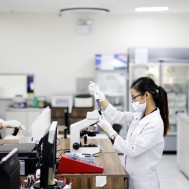In the medical field, every device used to help patients should be of the highest quality and completely safe. That’s why many professionals turn to medical grade silicone as a top choice for medical devices and seals.
After vigorous testing for USP standards, ISO and FDA approval, silicone is able to be classified as “medical grade” and safe to apply in critical applications. Known for being non-toxic, durable and extremely versatile, medical grade silicone is a trusted material that can be used across a wide range of applications.
Here’s a closer look at what makes medical grade silicone a safe material for the medical field.
Non-Porous
Porosity is a big concern for medical seals and devices. A porous rubber material contains microscopic holes that allow fluid, bacteria and other microorganisms to become trapped inside. This can cause a wide range of problems, from surface irregularities in the medical device to infections in the patient.
Rubber elastomers can be formulated to be porous or non-porous depending on the application. Medical grade silicone is non-porous, making it a safe sealing material in the medical industry.
Naturally Inert
An important feature we expect from medical grade materials is chemical and biological inertness, meaning they are non-reactive in the presence of other chemicals or human tissue. Some rubber compounds are very reactive to specific chemicals, which can cause irritation or infections when exposed to patients.
The base of silicone rubber is known as silica, which is composed of oxygen and silicon. This mixture is also the main ingredient of glass, which is commonly used in kitchen and laboratory tools because of its inertness and impermeability. Silicone’s non-reactive properties make it biologically compatible with living beings, which is a critical feature that medical grade materials must present.
Temperature and Chemical Resistance
While silicone is non-reactive with chemicals, it also resists them, as well as many other fluid materials. This allows silicone seals to remain durable when exposed to fluids that may wear down other rubber materials. Silicone offers resistance to:
- Water
- Acids
- Oxidizing chemicals
- Ammonia
- Isopropyl alcohol
Silicone also offers excellent temperature resistance, which allows medical seals to stay intact in extreme high or low temperature environments. Compared to other elastomers, medical grade silicone can remain stable through temperatures ranging from –75°F to 500°F.
Want to learn more about medical grade silicone?
Contact an engineer today.
